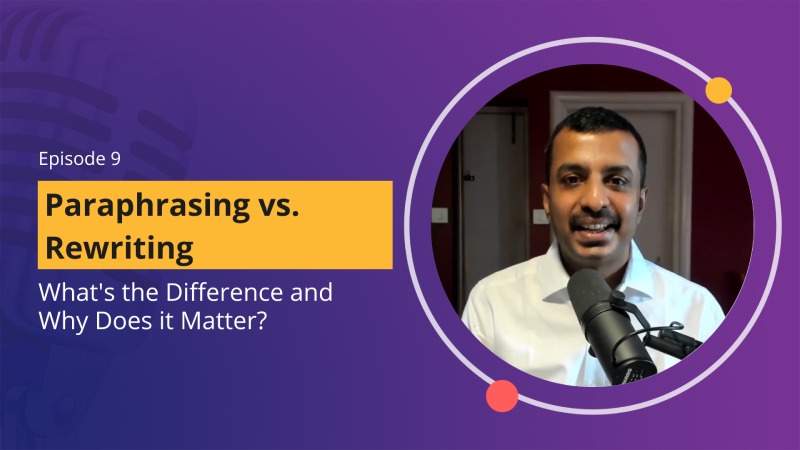Enterprise Inquiry
Role of ChatGPT in the Future of Academic Publishing
Explore how ChatGPT, the AI language model, is shaping the future of academic publishing. Discover its role in research, peer review, and more.
Introduction
Welcome to The Trinka Podcast, where academic publishing, writing, editing, and language technology tools converge. In this episode, we delve into the impact, concerns, and workarounds for ChatGPT in the academic publishing space. Join us as we explore the potential of this powerful language model and its implications for academic writing
Meet the Host

About the Speaker
Dr. Krishna Kumar Venkitachalam
The Trinka Podcast is hosted by Dr Krishna Kumar Venkitachalam, who prefers to be referred as Dr KK. He is a surgeon by qualification, but is very passionate about science, communication and languages. Also, he has been in the academic publication industry for the last 15 years.
ChatGPT in the Context of Academic Publishing
In this episode of The Trinka Podcast, Dr. KK explores the impact of ChatGPT (a generative language model developed by OpenAI) in the academic publishing space. ChatGPT, based on the GPT architecture, has the ability to generate natural language text that closely resembles human-generated text. It has been trained on a vast amount of data from the internet, including books, articles, and websites. The model's impressive capabilities include generating contextually appropriate responses to prompts, carrying on natural conversations, summarizing text, translating languages, and answering questions. These capabilities have the potential to revolutionize academic publishing by providing quick answers to researchers, helping with writing research papers, reports, and other academic documents, and summarizing large amounts of information for easy consumption.
The Positives of ChatGPT in Academic Writing
ChatGPT offers several advantages for researchers in academic writing. Firstly, it can assist in generating ideas and overcoming roadblocks in writing. Researchers can provide prompts to ChatGPT and receive suggestions on different approaches to tackle their current problems. Additionally, ChatGPT excels in developing outlines and creating early drafts, allowing researchers to save time and improve the quality of their writing. It can also enhance language usage by correcting spelling and grammar errors, suggesting synonyms, and adjusting the tone and strength of the text. Moreover, ChatGPT can help researchers find relevant research sources, check papers for plagiarism, and generate summaries and abstracts of research papers. These features contribute to efficiency and support researchers in various stages of the writing process.
Concerns and Workarounds for ChatGPT in Academic Publishing
While ChatGPT offers valuable benefits, there are also concerns to address. The main concerns include originality, bias, and accuracy. Plagiarism is a potential issue as generative language models like ChatGPT can be misused for unethical purposes. To mitigate this risk, users should be educated on proper citation and ethical use. Developers can implement safeguards to prevent unethical behavior, such as limiting access to certain features and monitoring usage. Bias in language models is another concern, as they can inherit biases from the training data. Developers can curate datasets carefully, remove biased language, and diversify training data to minimize bias. Users should critically evaluate the model's output for biases and inaccuracies, seeking multiple sources to ensure a balanced representation of information. Accuracy is also influenced by the model's training data, and researchers should be aware of limitations in up-to-date information. Iterative refinements in prompts can improve the quality of generated text, but it's essential to understand the model's limitations and use it responsibly.
Parting Thoughts on ChatGPT in Academic Writing
Dr. KK emphasizes the importance of understanding both the benefits and limitations of ChatGPT in academic publishing. While harnessing the power of ChatGPT can significantly improve workflows, blind reliance on the model without considering its limitations is flawed. Regulatory measures from developers and authorities, along with smart usage instincts by users and publishers, can ensure the responsible use of ChatGPT in academic writing. Proper attribution and ethical conduct are crucial in promoting a culture of academic integrity. It is a balancing act between utilizing the capabilities of ChatGPT and addressing the concerns associated with its use. Dr. KK concludes by reminding listeners that every gripping story has its challenges, and the key lies in finding the right balance in utilizing language technology tools like ChatGPT in academic writing.
Don't miss our
latest episodes
Get notified when a new episode is released!

